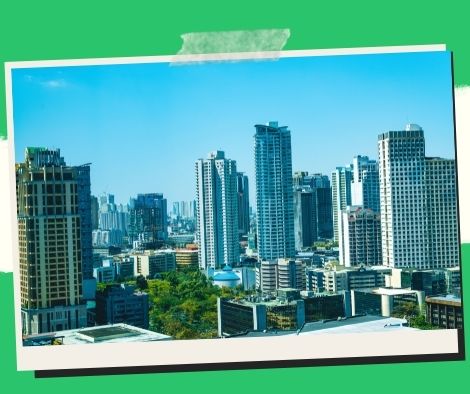
In 2022, the Philippines’ GDP is expected to increase by 6-7 percent.
Despite the threat of the Omicron variety, the Philippine economy is likely to return to its 6 to 7% growth trajectory in 2022 after nearly two years of dealing with the pandemic, according to the Metrobank Group’s investment banking arm.
Domestic demand will be sustained this year, according to First Metro Investment Corporation (FMIC), as will softening inflation, election expenditures, and increased government investment on infrastructure projects.
“We are still optimistic that Philippine growth will accelerate further and return to its track of 6-7 percent in 2022, despite the current pandemic and Omicron initiating the third wave of infections,” FMIC president Jose Patricio Dumlao said in a video conference Tuesday.
According to Dumlao, the economy grew by 4.9 percent in the first three quarters of 2021, and with increasing economic openness and lessening mobility limitations, the growth trend is projected to continue in the fourth quarter.
He noted that, given the increased availability of vaccines and the reduction of lockdowns, quarantine measures, and mobility restrictions, business and consumer confidence is cautiously optimistic.
Dr. Victor Abola, an economist at the University of Asia and the Pacific (UA&P), believes the industry sector, which includes both building and manufacturing, will drive this year’s GDP growth to 6 to 7%.
As the pandemic precautions reached hotels and restaurants, Abola predicted that services would continue to lag.
“The reality in the Philippines is that it is recovering, but it is still a long way from pre-pandemic levels,” he said.
In 2020, the country’s GDP grew at a negative 9.5 percent year-over-year rate, compared to 5.9 percent pre-pandemic in 2019.
Business process outsourcing (BPO), according to Abola, is a vital contributor to the economy’s resiliency in the face of the pandemic.
“It’s also not the same as traditional call centers, etc.” Companies are focusing on new, emerging industries, such as insurance, life sciences, healthcare, and data analytics, he said.
Apart from BPO profits, FMIC chairman Francisco Sebastian claims that remittances from overseas Filipino workers (OFWs) are supporting the economy.
“These two things aren’t as enticing as things like technology and telecommunications… This is what is preventing us from moving forward. “OFW remittances are still increasing,” he stated.
Save/Share this story with QR CODE
Disclaimer
This article is for informational purposes only and does not constitute endorsement of any specific technologies or methodologies and financial advice or endorsement of any specific products or services.
 Need to get in touch?
Need to get in touch?

We appreciate your reading. 
1.) 

Your DONATION will be used to fund and maintain NEXTGENDAY.com
Subscribers in the Philippines can make donations to mobile number 0917 906 3081, thru GCash.
3.) 
4.) 
AFFILIATE PARTNERS

World Class Nutritional Supplements - Buy Highest Quality Products, Purest Most Healthy Ingredients, Direct to your Door! Up to 90% OFF.
Join LiveGood Today - A company created to satisfy the world's most demanding leaders and entrepreneurs, with the best compensation plan today.

 Business, Finance & Technology
Business, Finance & Technology





